Jane Austen’s ‘Emma’: How Austen Writes an Independent Woman
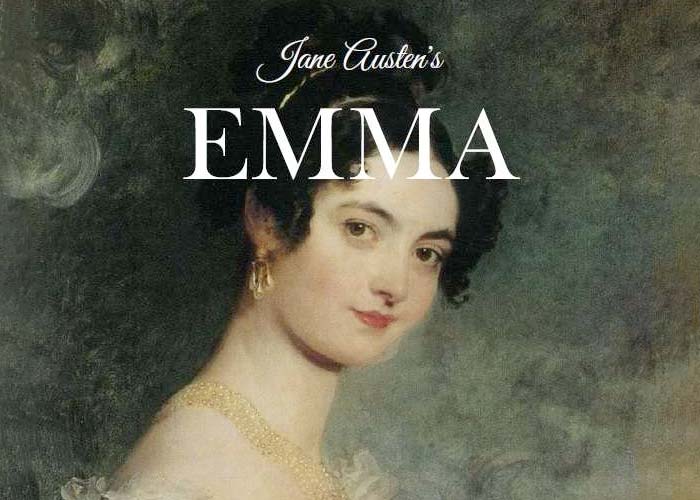
“Emma Woodhouse, handsome, clever, and rich” (1) 1. So begins Jane Austen’s novel Emma, the last to be published in her lifetime. It is also the only novel by Austen named after its heroine, and Emma Woodhouse is certainly unique among Austen’s array of characters. She is beautiful, well-educated, and the youngest daughter of a wealthy father introduced as “affectionate, and indulgent” (1). Unlike Austen’s other heroines, who face social and economic barriers to their happiness, Emma is only concerned about evading boredom. Indeed, Austen writes that Emma’s only “real evils” (1) are her pride and often misplaced self-confidence. The domestic setting of the novel, alongside the wealth of everyday details that Austen provides, caused readers at the time of publication to criticize it for being boring. Some contemporaries argued that there was no story at all 2. Despite this, the novel has captured the imagination of readers for over 200 years, with a wide variety of written adaptations, and four popular films.
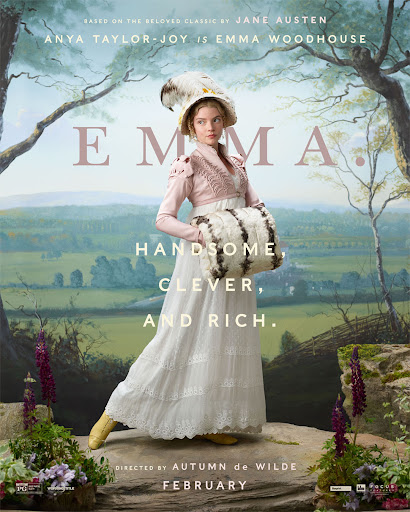
The novel takes place in the village of Highbury, among a small social circle made up primarily of wealthy families. Emma, while having no interest in getting married, believes herself to be highly skilled in reading people and manipulating social situations, particularly when it comes to matchmaking. The only character who sees issue with Emma’s interference with others is her long-time friend and quasi-mentor, Mr. Knightley. Emma ignores his advice, trusting her own judgement above his.
The novel starts with her lamenting the loss of her governess, Miss Taylor, to her new husband, though Emma celebrates that she spotted the potential match and introduced the couple. Her sights quickly move onto a new target, a young woman named Harriet with uncertain parentage, whom Emma is determined to set up with a gentleman. She persuades Harriet to turn down a marriage proposal from a farmer with whom Harriet is obviously enamoured in pursuit of a more advantageous match. Several potential matches are approached, though none prove successful and Emma’s efforts result in poor Harriet’s heart breaking more than one time. At the end of the novel, Harriet declares her love for Mr. Knightley, which causes Emma to realize her own feelings for him. Emma and Mr. Knightley are married and Harriet ultimately ends up with the farmer she turned down at the beginning of the novel. The last sentence is Emma and Mr. Knightley’s marriage, and “the perfect happiness of the union” (381).
Emma is a heroine that the reader loves to hate. Snobbish, entitled, and sporting an unwavering penchant for sticking her nose into other people’s business, it’s easy to see why. She overcomes her selfishness near the end of the novel, when she realizes that she is in love with Mr. Knightley and agrees to marry him. Viewing someone else as her equal, and acknowledging that she is in love, is a significant step in Emma’s emotional maturity. Yet, many critics are disappointed by her marriage to Mr. Knightley. On the surface, her marriage appears to be a “taming of the shrew,” where an independent and headstrong woman surrenders to her feminine instincts and puts herself under the control of a man. For those who are not enchanted by Mr. Knightley’s romantic confession, this leads to a disappointing conclusion. It also raises questions about Austen’s intention with Emma. Why would Austen write a strong, independent woman, only to put her under the control of a man right at the end?
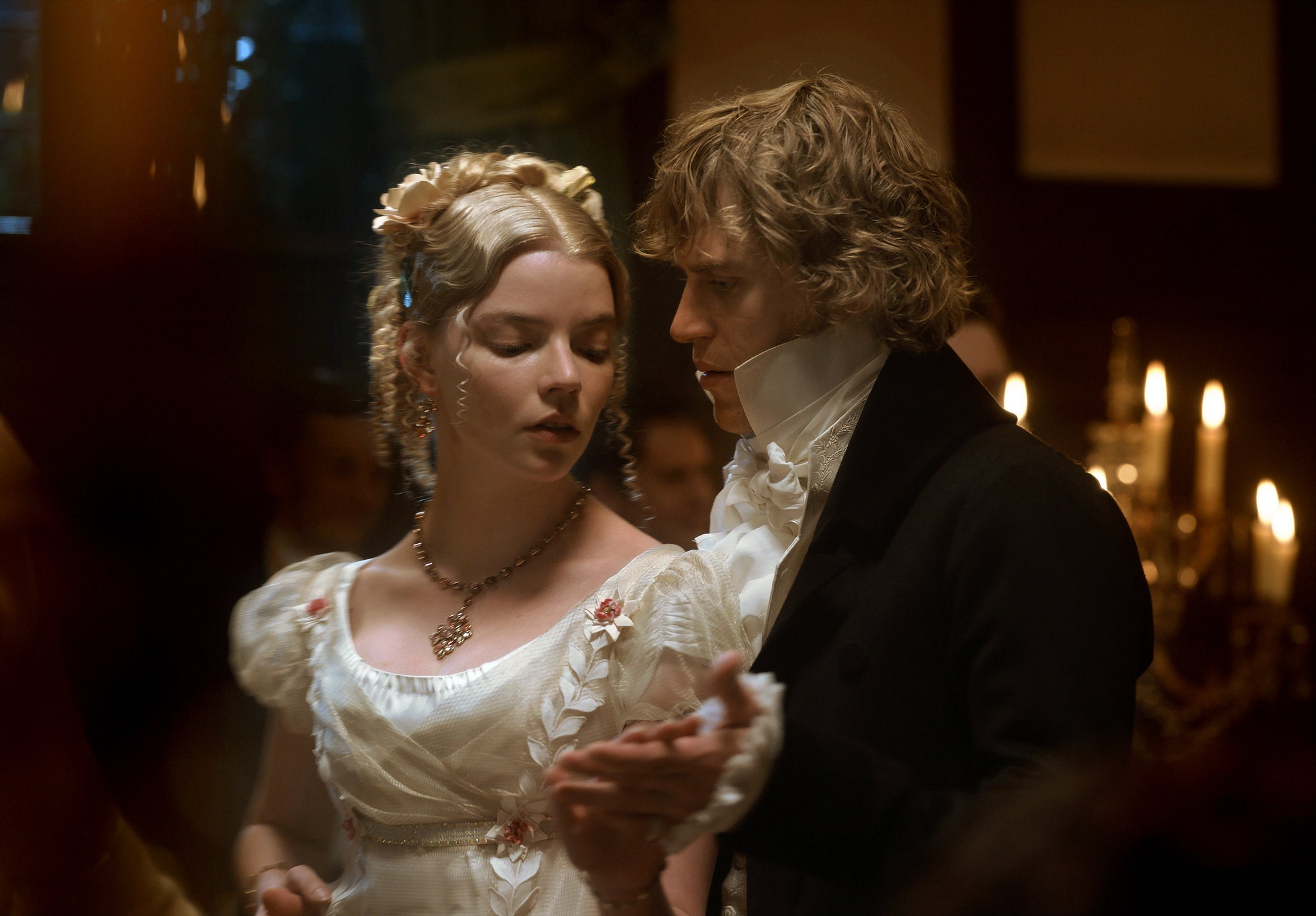
Yet, this interpretation of the text results in the reader missing a great deal of the strength of Emma’s character. It is also a fundamental misunderstanding of the effect Emma’s marriage to Mr. Knightley has on her independence and social status. Emma’s marriage to Mr. Knightley isn’t a submission to the patriarchy. Rather, it’s a way for Emma to grow past her headstrong faults and find happiness, without compromising her beliefs or surrendering her freedom.
Emma as the Traditional Woman
It’s not hard to see how Emma could be read as an anti-feminist text. Though Emma is wealthy, none of the wealth is hers. She is completely beholden to the indulgence of her father. Though his character dotes upon Emma to an almost comical degree, if he suddenly became less lenient, Emma would have no financial alternative. Her life in Hartfield is very circumscribed, and she hardly leaves her home. When Miss Taylor is married she moves “only half a mile away” (6), and yet daily visits are unrealistic and the loss of her company is deeply felt. Similarly, Emma’s sister “was much beyond her daily reach” (7) in London, sixteen miles away, though Emma has access to a carriage and several male characters make day trips to London throughout the novel. Emma also resorts to petty remarks towards women who she sees as her competition – namely Miss Jane Fairfax, a beautiful and talented young woman who draws attention away from Emma whenever they are together. Putting these elements together paints Emma as a highly controlled, financially dependent young woman who tears other women down. It certainly isn’t a flattering portrait.
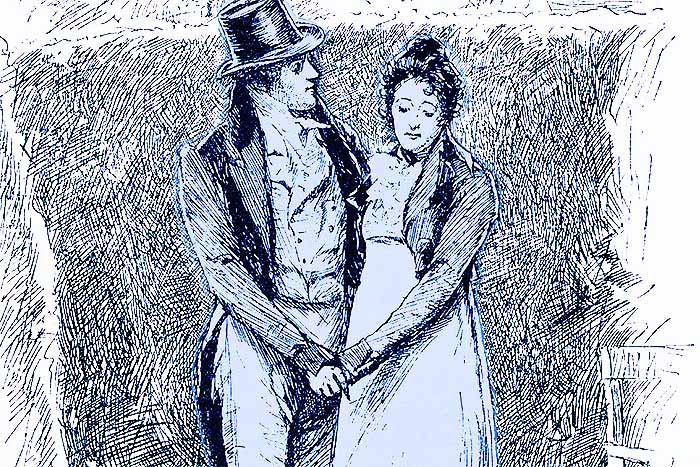
However, the main issue critics have with characterizing Emma as a strong and independent woman is her eventual marriage to Mr. Knightley. Throughout the novel, Emma’s actions are wholly independent. She places her own judgement above advice from others in every situation, often to her own detriment. To finally agree to marriage, to an older man (Emma herself being just shy of twenty one and Mr. Knightley close to forty years old) who acts as a mentor throughout the novel no less, seems to backtrack on Emma’s independent character. Being married would necessitate a certain submission to her husband. To have an independent woman choose marriage, particularly when she has absolutely no need – financially or socially – to marry, seems odd. It also seems to go against Emma’s own values. In Volume I, Emma laughs when Harriet mentions her surprise that she has not yet been married. Emma replies:
I have none of the usual inducements of women to marry. Were I to fall in love, indeed, it would be a different thing! […] And, without love, I am sure I should be a fool to change such a situation as mine. […] I believe few married women are half as much mistress of their husband’s house, as I am of Hartfield. (68)
Reading this, the natural conclusion for the reader to draw is that Emma comes out at a net loss when she gets married. She doesn’t gain wealth or social status, and her freedom would be restricted. And, to add insult to injury, Emma is marrying the only character in the entire novel who criticizes her openly. At face value, it seems to be a very poor outcome for Emma indeed.
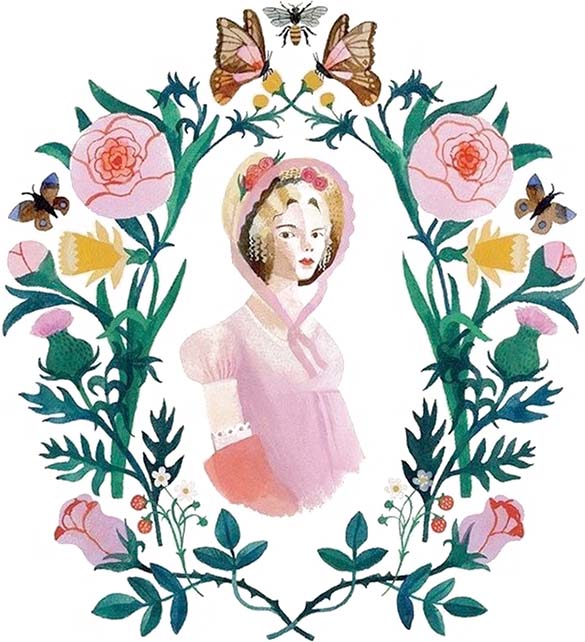
Emma as Feminist
Yet Emma is not, as some argue, a novel about “the necessity of female submission for female survival” 3. This analysis comes from viewing the novel through a contemporary feminist lens. Viewing the work this way, ignorant of its historical context, prevents the reader from understanding the nuances of Emma’s character and her relationship to Mr. Knightley.
Emma was first published in 1815, and Jane Austen herself died in 1817, years before first-wave feminism would take off. This is not to say that nothing was feminist before the formalization of the movement. Women have always acted in feminist ways. Rather, Emma, alongside Austen’s other novels would be considered proto-feminist, a term used to describe works that explored themes of gender equality before today’s idea of feminism existed 4. Emma, though set within the constraints of what was easily imaginable for a woman of wealth at the turn of the 19th century, shows the heroine conducting herself in a way that promotes gender equality, without touching explicitly on the subject.
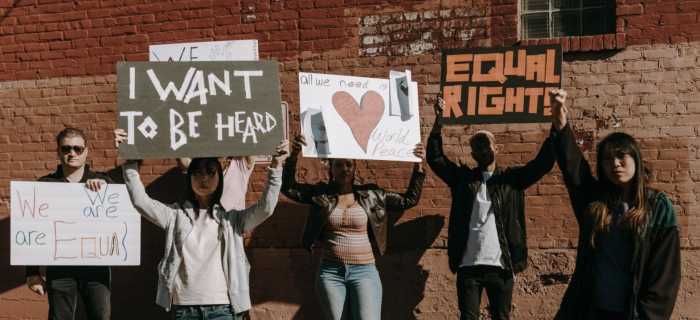
Thematically, Emma is considered a female bildungsroman, a novel which covers a character’s formative years or spiritual development. While a male bildungsroman typically shows growth from separation – through, for example, a quest or adventure – the female version focuses on growth via connection with others, often in domestic spaces. It is within these domestic spheres that Emma shows the most need for personal growth. This is in part because the turn of the 19th Century was when “ladyhood” transformed from merely a class ranking – being a Lady to a Lord – to a classification of behaviours 5. Faced with peers who only encourage her, in a social and economic position that leaves her wanting nothing, Emma must learn, essentially, how to get along with others. Thus, Emma Woodhouse experiences character growth much the same as a man would in an adventure novel, but within the realistic domestic limitations that would have been possible for a woman of her class at the time of writing. Indeed, Austen’s portrayal of life in England at the turn of the century is filled with such rich detail – the very same detail that made contemporary readers yawn – that it seems absurd to critique the main character for also existing within realistic circumstances.
Emma’s existence within these realistic domestic settings are the grounds for her to exercise her unique independence. At the beginning of the novel, Emma cannot see anyone in her life suitable to be her husband. Even when she is flattered by a man’s attention, that of the handsome and wealthy Mr. Frank Churchill, she does not see him as a serious potential match. This begs the question of why Emma would fall in love with Mr. Knightley, her realization coming “with the speed of an arrow” (320), which is perhaps the fastest decision she makes throughout the whole novel. The answer lies in his role as a mentor in Emma’s life.
Mr. Knightley never pushes his guidance onto Emma, but he makes it clear that he believes she could improve upon her attitude. From the very start of the novel, he criticizes her sense of ownership over her governess’ match with her new husband, asking her if she truly put in any work or merely had a lucky guess. Throughout the novel he continues to resist her in ways that no other character does, discouraging her interference with Harriet’s love life and defending Miss Fairfax from her disdain.
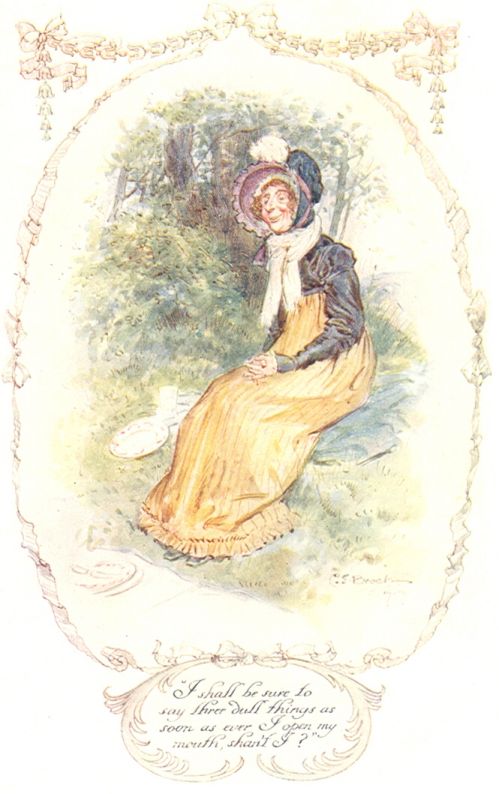
Yet the climax of their disagreements occurs when their group attends a picnic where Emma publicly insults Miss Bates, a sweet spinster whom Emma finds dull. Mr. Knightley pulls her aside and reprimands her for using her influence in the group to openly humiliate someone of a lower position. At first, Emma tries to laugh it off, but as he explains how disappointed he is in her cruelty, she finds herself weeping. This marks the first time in the novel that Emma realizes that her actions were unkind, and she further reflects that “she had been often remiss… scornful, ungracious” (296) towards others. The next morning she pays Miss Bates a visit to make amends, the first time that Emma acknowledges her wrongdoings and tries to fix them in a way that does not merely benefit her. Her acceptance of Mr. Knightley’s guidance on this issue is not an acknowledgement of him as her intellectual superior, but rather as her equal. Mr. Knightley is the only character who sees past Emma as “handsome, clever, and rich” and instead expresses a desire to see her grow. He loves her for who she is, headstrong and all, and her self-reflection and change in behaviour stem from the realization that she is not perfect, and her subsequent desire for personal growth.
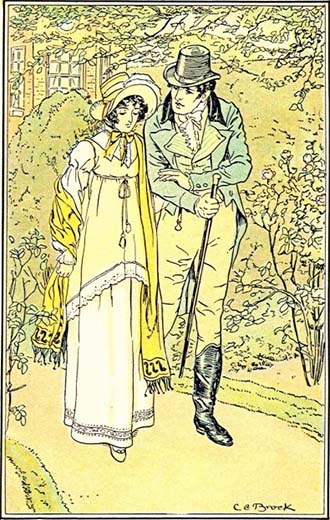
Emma’s marriage to Mr. Knightley demonstrates her ability to remain independent within traditionally gendered spaces. She is not, as many argue, submitting to the patriarchy. Rather, she is fulfilling her promise to Harriet earlier in the novel to only marry for love. The most remarkable element of Emma’s marriage is Mr. Knightley’s agreement to move to Hartfield, her father’s estate, to live with Emma and her father, an arrangement that would have been extremely unusual at the time. He also agrees to her terms that she will continue to call him “Mr. Knightley,” rather than by his given name, as long as she likes, because it makes her more comfortable. These two elements combined mean that if anyone’s place in society is impeded by this marriage, it is Mr. Knightley’s. But his willingness to accommodate Emma outweigh his pride.
Feminist icon or not, the element of the novel that gives Emma the most strength is her imperfection. As she grows throughout the novel, she overcomes her personal hurdles. She is allowed to make mistakes and grow, as any young person should. The reader learns to love Emma despite her flaws, and Emma learns to put those flaws aside and love others. Whether her independence is superficial or not, Emma is a novel about a young woman who is allowed to develop on her own, following her heart and principles above anything else. And, perhaps, that is all that is needed to be a strong woman.
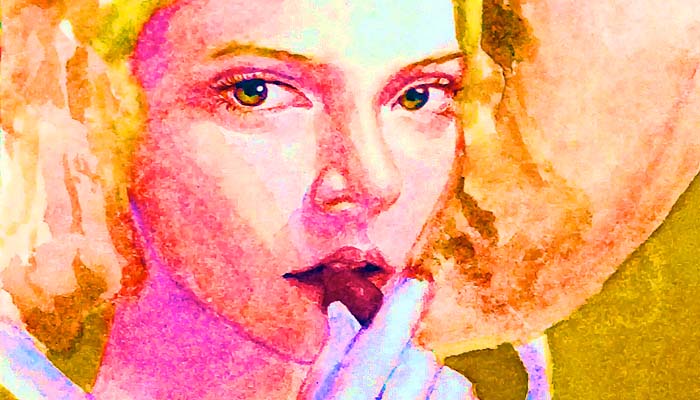
Works Cited
- All quotes come from Austen, Jane. Emma. 1815. Oxford University Press, 2008. ↩
- Pinch, Adela. Introduction. Emma, by Austen, Oxford UP, 2008, pp. vii-xxx ↩
- Kohn, Denise. “Reading ‘Emma’ as a lesson on “ladyhood”: a study in the domestic ‘Bildungsroman.’ Essays in Literature, vol. 22, no. 1, 1995, pp. 45+ ↩
- Collar, Cammila. “Should We Really Go Around Calling Jane Austen a Proto-Feminist?” Outtake, 2 April 2017, https://medium.com/outtake/should-we-really-go-around-calling-jane-austen-a-proto-feminist-2167b93365e9 ↩
- Kohn, Denise. “Reading ‘Emma’ as a lesson on “ladyhood”: a study in the domestic ‘Bildungsroman.’ Essays in Literature, vol. 22, no. 1, 1995, pp. 45+ ↩
What do you think? Leave a comment.











I have only seen the 2020 movie adaptation of Emma (which I loved!), but based off of that, I think Emma and Mr. Knightley are a great match for each other. He is the only one who doesn’t mince words with her, despite his underlying and abiding affection for her. As you suggest, his character is an impetus for her to grow and develop as a person. To echo your words, showcasing a multi-faceted woman in this way seems pretty “feminist” to me. Thank you for your article.
What a wonderful analysis. Quite simply the best analysis of any Austen novel I have ever read. It makes me ashamed to admit that I hated ‘Emma’ and simply didn’t ‘get’ it and have never reread it though I love everything else Austen wrote. Thank you! And you’ve completely convinced me she’s up there with the greats, Flaubert, Joyce, Beckett and Shakespeare.
I’ve tried to reread it twice, and never got further than half way, but this has persuaded me to have another go.
There isn’t enough space here to explain why Austin isn’t fit to lace Beckett’s boots…
You could look at ‘Emma’ as a tragedy. Emmas self absorption, and using of other people for her own self gratification, is rewarded by spending the rest of her life with the manipulative groomer Mr Knightley.
No way, the satisfaction of the whole plot comes with her realisation that she’s been behaving like a total bitch and her desire to then reform.
Interesting take! He was a bit of a mansplainer to be sure. Will keep this in mind next time I read it.
I laughed at that, but there’s there’s quite a bit of truth in it. Doesn’t it say somewhere that he was in love with her since she was 13? Of course realising that they are so similar in character is partly what brings them together.
Great piece. Jane Austen is brilliant – one of the finest authors of all time. I sometimes long to go back in time just so I could tell her that one day she’d be appreciated. Too many people don’t just grasp what she achieved.
I’ve always held Emma at arm’s length, not because the heroine is obnoxious, but because her faults, after patient elaboration, are so quickly and almost painlessly straightened out.
I am ashamed to say I last read Emma about 30 years ago, at uni.
Our lecturer was also the college principal and head of the English Department: one of the magnificent Parsi spinsters who populated it in those days (yes, we had four of them in the one department, all proud of their “Miss” status).
On the first day, introducing us to Emma, she made some passing observations about the mores of those times. And then she thundered:
“And Jane Austen, like Emma, and like me, was a virgin! Which is more than I can say about some of you girls!”
She ignored us boys who were also in the class at the time, but I will never forget that, or the way in which she took us through Emma. Unforgettable Miss Shroff.
Delightful article – I’ll read Emma again with fresh eyes.
She’s a puzzle Jane Austen… She wrote superfically conventional, conservative books… nothing a Victorian family would ban their daughter from reading and yet no one conveys the horror of women’s limited choices in life like Austen. Was undercover feminist?
I think one can only find them conventional if the ever-present ironical eye is ignored.
Subtly subversive, yes.
“Emma” is a novel that rewards every re-reading.
I was introduced, as a very reluctant 16 year old, at school. On first reading I was less than impressed. Over the next two years my, excellent, teacher illuminated the brilliance of the text.
Since then I have re-read every few years. On the last reading I was particularly struck by the strawberry picking scene. On getting to the end I went back and read it through again. It is a truly extraordinary passage.
Wonderful – so much more to look for in a novel I had overlooked a bit (Mr Knightly is a bit of a bore). Thank you.
Knightley’s priggishness is less his own manufacture than it is Emma’s.
Emma has one of the greatest lines in Jane Austen – “It was a delightful visit;-perfect, in being much too short.”
Really good article. But I’m obviously shallow and lacking intellectual rigour but I just find Jane Austen incredibly dull.
Most of the people I’ve met who found Jane Austen dull, including me in my youth, have read it with TV costume dramas in mind. Jane Austen on the page is an extended piss take that dramatisers rarely manage to capture and it’s a lot of fun.
Quite. Characters I’d no wish to meet in the flesh or on paper indulging in manipulative mating-games because they don’t have to work for a living. At least Les Liaisons Dangereuses has a sword-fight and real risks. Nothing much is at stake in Austen-world, only the reader falling asleep from sheer tedium.
I couldn’t agree more, those Eng Lit A Level lessons were forgotten by time. It wouldn’t do for us all to like the same stuff, clearly, but nothing of any interest happens to characters who failed to engage me, the end. Maybe that’s one of the reasons my result was so poor or maybe it’s because I would rather play cricket instead of revising (yes I know, nothing of interest happens to characters who fail to engage…..)
It’s sex and shopping of the regency period.
And i might add that while Jane Austin was writing this childish piffle, there was a massive war going on, where brave men were defending our very freedom against tyrants.
Yet they decide to put her image on the currency.
I would like to have seen what polite society thought of a regiment of Napoleons Old Guard rampaging through London – with their earings and their pigtails and their bayonets.
Still that said I do enjoy her romances. My favorite is Persuasion.
Of our greatest writers who wrote about the lives of women, Austen pales in comparison to Bronte in my opinion. Bronte’s women had guts, grit as well as being part of a good story. Austen’s characters bored me to pieces. Not through want of trying (I’ve had a go at Persuasion, Sense and Sensibility and Pride and Prejudice) I just can’t enjoy (or maybe i just can’t appreciate) Austen as I’m perhaps meant to.
I imagine that if you’re not a bit of a people-watcher in life, then you probably wouldn’t enjoy Austen, but if you are it’s so rewarding to see how similar people (or at least the English!) are to who they were 200 years ago, and how a sense of humour (and a fine sense of the ridiculous) is still shared.
Not many laughs in the Brontes, though.
Assuming you’re referring to Charlotte Bronte, I like her novels too. But reading Austen novels is like being huddled in the corner at a party with the most intelligent, hilarious guest!
Thought the prose in Villette is sumptuous, Austen is sharp as an envelope flap. To paraphrase Mel Brooks, funny… on someone else’s tongue.
Jane Austen has always been one of my favourite comedy writers. I love her tongue in cheek sarcasm.
Those of us who live in small towns love Jane Austen, because her characters are instantly to be recognized.
Austen pulls off the very difficult trick of making the heroine snobbish, self satisfied and unaware, and at the same time totally lovable.
Emma is an incredibly brave work. All of the other heroines are fundamentally likeable girls, but Emma is fundamentally annoying. We are with her for the whole book, and it is a tribute to how good the writing is that we are able to stand it.
I never thought of Jane Austen as brave for writing a character like Emma, but now that you mention it, yeah, she was. Emma was a brave character for her day because girls and women were expected to be perfect, demure, whatever. And I think she’s still a brave character, because I sense we are coming full circle, to where females are expected to be perfect in a new way. We’re no longer expected to be paragons of femininity, but now we’re expected to marry, raise children, kick butt in the boardroom, maintain single-digit figures, have influence in every single group we’re part of, manage finances… The list goes on and on, and we have to do it all, or we’re failures. I think if Emma were a 21st-century woman, she would politely and demurely say, “Screw that.”
This reminds me of what I probably always knew about Emma but never expressed it so well. Would that I could have read it 53 years ago when I was studying Jane.
Oh Lordy. I hated Emma when I first read it and I’ve tried twice since and still dislike it intensely. I find it intensely rambling, over-indulgent, in sore need of editing and stuffed to the gunnels with one-dimensional characters – the male ones in particular are little more than cyphers.
Reading this article, I ordered Emma from my library, I just got an urge to read it. Thank you. Will report back after I finish it. 😉
Austen was revolutionary and still feels incredibly modern.
Many modern novels cannot achieve the level of characterisation that she did. That she managed to achieve this without technology, entirely self-taught and within the conventions of the day, in so little time, is simply extraordinary.
People who think that she just writes about dresses and weddings are entirely incorrect — she writes about people and human nature. Like Shakespeare, you could take her stories of love, arrogance, duplicity and modernise them to still have the same effect.
In fact, she barely mentions clothes or appearances at all unless it provides characterisation.
I’ve always said Emma is the great masterpiece of close perspective 3rd person writing. We can see the self-delusion, but if Emma herself read the same text, she’d see nothing wrong with the picture.
I often think that Austen’s novels each consider (and royally take the piss out of) different aspects of the author’s complex personality: from the youngster enamoured of fiction (Northanger) to her rather puritanical side (in Mansfield Park). But self-delusion is a central theme. Nearly all her characters are prisoners of their own presumptions, but the central characters manage to overhear themselves, and to some extent at least change for the better.
Not that Austen believes in simple happy ever afters. Elizabeth and Darcy will have their problems and what matters most is that Mrs Bennett ‘got rid of’ two of her daughters. And Emma will still have her moments.
It’s probably one of my favourite books, and is also the basis for one of my favourite films “clueless”.
For my money, ‘Clueless’ is the best Austen film of all time.
But what about Austen Powers? 😉
I see a tie in between Emma’s marriage to Mr Knightley and the depiction of Jo speaking with her publisher in the recent movie adaptation of Little Woman, wherein the publisher said no one wanted to read a book about an unmarried woman. Regardless, the way that Austen continues to delight readers of all walks remains joyous.
You could say they’re both manipulative and deserve each other. Maybe this means that, as with the Carlyles, their getting married means two people will be unhappy instead of four. Or maybe everyone will be happy. (It’s not only perfect people who deserve soulmates, after all.) Or maybe there’ll be a zombie invasion.
Ack… Emma. I think Emma can be the hardest of her novels to enjoy first time – particularly if you are young and the embarrassment that the heroine suffers can feel a little too close to home. One of the interesting things about the book is the influence that it has on two later popular genres – both the ‘comedy of embarrassment’ that is the driver of so many British and US sitcoms and the ‘classic’ British detective story.
This not only takes Austen’s three of four families as its basis but constantly uses the misdirection that Austen pioneers throughout this novel to keep the story going. You could argue that Agatha Christie’s entire oeuvre is not so much Sense and Sensibility and Seamonsters as Emma and Corpses.
Austen is absolutely hilarious, but one often doesn’t realise the joke immediately, making them fantastic re-reads. And when you realise, it’s as though you’ve solved a little puzzle and are sharing a laugh with someone who died in the early 1800s.
I remember reading an essay on Emma’s narrative structure when I was studying many moons ago and it just opened my eyes to a whole new way of reading.
Great article – never really liked Emma – but now I want to read it again.
I understand. I had to listen to it on disk before I finally ‘got’ it. And now can read it with pleasure, and love it dearly. Not to mention how many good movies it’s engendered.
When I first read Emma I thought it a cruel and heartless book, different from her other works, but put it down to a hardening in old age. What I still find it hard to appreciate is that Austen made clear her liking and fondness for Emma, above all other characters in her work. And is there not something odd about Mr Knightley, (the name itself is suggestive) the old bachelor who finally lands Emma once she has matured? Perhaps this is Austen’s asperity and merciless scrutiny of society.
No, Emma is a gawky person, somehow full of good intentions that often go wrong.
I love 19th Century British fiction but cannot stomach Jane Austen. Give me Anthony Trollope any day.
Trollope was only two when Austen died, so their writing is separated by a generation or more. They were writing for very different audiences in different worlds, and Austen was only just 19th-century. It’s fine to like one and not the other (I always found Trollope boring and am not in the least surprised that politicians so often claim him as their favourite author), but they’re not really in the same market.
I love this SO MUCH. Kudos for explaining how Emma can be read as anti-feminist and proto-feminist at the same time, as well as why we read her even though we love to hate her.
Great feminist analysis on Emma. I read it first for A-level and completely hated it. Or rather, I hated it until I got halfway. And then as I kept going, it became this just amazing book and completely changed my view of Austen forever.
Jane Austen makes brilliant writing look easy – only when you go back and realise how subtle and clever the writing is – you appreciate why it has become such a literary and cultural icon.
Reading Jane Austen as a teen, I learned so much about morality.
I’m from a working class background, but I could still identify with all the human stengths and weaknesses that Jane Austen so expertly and subtly conveys.
She is an absolute pro at human strengths and weaknesses, and that’s why I love her, too.
Austen was tops, and this very good article is just another explanation of one part of why. If you read her and don’t get shivers up your backbone, or laugh out loud repeatedly, I’m sorry for you, I truly am.
I like austen books, but I was never truly won over until Emma. I can’t even begin to explain how much I love the book Emma. It has to be one of my all time favorites, and this article hit it on the nail why I love it.
Now I’m going to have to go up to the attic to find my discarded copy of ‘Emma’ – damn you.
Emma is one of my all-time favourite novels, and is still a joy to re-read.
Jane Austen has more knowledge of human nature in her little finger than most novelists have in their whole bodies.
A great read, about my favourite book of all time. Now I have to go and read it AGAIN.
One element of Emma’s marriage to Mr. Knightly is that he is one of the few people that has good relations with her particularly of the opposite sex. Just an observation.
I think this may be my favorite article in a long time. It’s not easy to present a heroine as both feminist and anti-feminist, and you did so extremely well. Plus, I think you captured why we love or appreciate Emma, even though we have a ton of reasons to hate her–or while we hate her. (For instance, there are a lot of moments in the books and films where I can’t stand her. Yet there’s no denying she’s unforgettable).
Thank you! I totally agree, there are parts of the book/movies where I am absolutely rooting against Emma. But I think the domestic tone of the novel makes her transgressions very relatable for the reader/viewer. Everyone’s said something that came across a lot crueler than they meant in a social situation! So watching Emma learn from her mistakes, and seeing the forgiveness of those around her, is almost relieving in a way. Maybe we can all be forgiven for our mistakes too 🙂
I love what you said about Emma learning from her mistakes. Yes, that’s exactly what she does, and she’s a more relatable character because of it. I think today, we’ve developed a taste for perfect characters. So when an otherwise nice, normal, relatable character is mean to somebody or has a lesson to learn about how the world works, or hurts someone else, we want to “cancel” them. But that’s not fair to the characters or to us.
This was a very refreshing read! I agree entirely. Emma is a fiercely independent woman and can be considered a protofeminist character and novel. I loved your explanation of how her marrying Mr. Knightley does not contradict her independent nature but aligns with it as she did indeed only marry for love.
I really have to read the books again sometimes, they are really so easiy to read but also so capturing at the same time.
Thanks for a great discussion. I have a love for Emma, a fantastic and interesting novel. I enjoyed too the most recent adaption and found it fascinating that she got a nosebleed when he declared his love – a very interesting commentary on the lifestyles of women in the period (or perhaps just a great accidental filming moment).
Excellent inclusion of the word ‘bildungsroman’ which I now must find a way to use.
It is interesting to continue to deconstruct Emma as our cultural and societal mores shift . What was considered an acceptable lens even 5 years ago no longer stands. Perhaps its timely to have an examination of Vanity Fair and Becky Sharp could be seen as a practical woman who worked with what she had, and re frame scheming opportunist to pragmatic survivor. then we can rethink Emma.
I have a love of books and movies from this period. I enjoy being swept up in the romance, the structure and the societal rules and how strong the female characters are. The women in books like Emma are relatable, they’re imperfect and they’re just trying to get by in a world that is trying to stifle them. I think we can all relate to this a little bit, can’t we? Persevering against the odds to have an adventure, to find love, to learn about ourselves. That’s something to be admired and celebrated, I think.
This is a very intersting interpretation-I haven’t read any of Jane Austin’s work, though I’ve heard about the influentialness of her writing and how compelling her characters are. People can connect with and understand characters in very different ways, and this was a very fascinating exploration of Emma. Looking at the historical context and greater implications of how her character gave your article a lot of depth and range. Its also very interesting to ask ourselves what being the hero of our own story really means, and it was very cool how you invoked this question in your article.
Interesting article! Emma has been one of my favorite novels for many years, and I enjoyed your analysis. I’ve always liked Emma as a heroine because her faults make her relatable. She’s not trying to be well-liked; she’s just being her flawed self. She’s refreshing compared to the perfect or one-dimensional heroines in many other novels of the time.
I do find the age gap between Emma and Mr. Knightley uncomfortable – not because he is older than her, but because he knew her since she was a child and it seems his feelings for her started while she was still underage. (It’s not so obvious in the film adaptations because the actors are closer in age, but in the book, it’s quite off-putting). I personally prefer to picture Mr. Knightley as a family friend only a few years older than Emma. That said, a lot of the ideas surrounding their relationship are lovely. Emma spends her whole life studying other people, but she doesn’t really know what she wants for herself (partly because she is so devoted to her overprotective father). I think people often characterize Emma as selfish because she likes being the center of attention and constantly thinks about how situations will affect her own life, but she actually lives a pretty selfless life because she has dedicated her entire life to her father. When she decides to marry Mr. Knightley, she is finally making an important choice as an independent woman. While Knightley isn’t a perfect love interest, I think he respects Emma enough to tell her the truth, whereas Churchill is a smooth-talking liar (in that way, they mirror Mr. Darcy and Mr. Wickham from Pride and Prejudice). Also, Emma’s decision to marry is completely in her own hands – she’s not forced to wed for money or status. Therefore, I do think Emma is feminist – especially for the time it was written.
Loved this! Emma is my favourite of Austen’s novels and characters. It’s hilarious! And I always found Emma’s flaws relatable, especially as a late teen when, let’s be honest, the majority of my friends and I were every bit as annoying and obnoxious as Emma is. The book focuses on Emma’s growth, on how she matures and learns from her mistakes, adjusting her poor behaviour.
Even at the beginning of the journey, I feel that Emma, despite her flaws, is actually a very kind-hearted and selfless person. She loves her father and Miss Taylor dearly and always seriously reflects upon Mr. Knightley’s criticisms of her character.
Also, a bit of a side-note, but I’ve never really understood the love from Cher from Clueless but the widespread distaste for Emma Woodhouse… they really are the same character behaving in the same ways!
This was beautiful, I really loved Emma and I think you totally hit the nail on the head about Emma not being a a victim of patriarchy and that she exercised power within the confides of her position. Also thank you for highlighting Knightly’s enormous gesture at the end, to move into his wife’s family home rather than the other way around as you said was unusual for the time.
Very well written! Modern feminist literature owes a lot to Jane Austen’s work.
Great article. I completely agree with the analysis yet I still find her to be the most annoying of Austen’s lead characters.